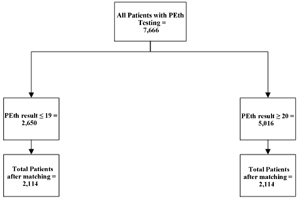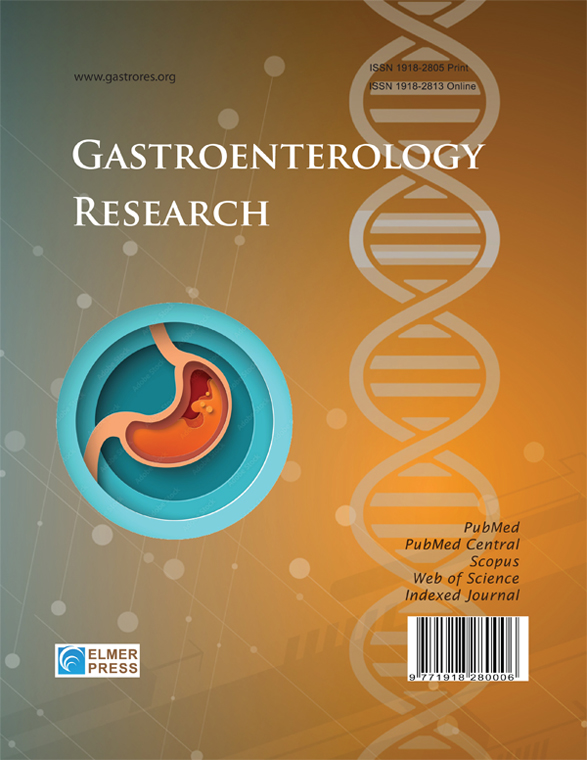Evaluating the Impact of Phosphatidylethanol Testing on Hospital Outcomes
DOI:
https://doi.org/10.14740/gr1790Keywords:
Phosphatidylethanol, PEth testing, Alcohol dependence, Patient outcomesAbstract
Background: Alcohol dependence remains a significant global health issue, exacerbated by the coronavirus disease 2019 (COVID-19) pandemic. Phosphatidylethanol (PEth), a direct biomarker of recent alcohol consumption, offers improved specificity, sensitivity, and a longer detection window of 2 - 4 weeks compared to traditional biomarkers. This study evaluates the association between PEth testing and hospital outcomes in hospitalized patients by comparing outcomes among patients with positive PEth and negative PEth test results.
Methods: This retrospective cohort study used data from the TriNetX database, comprising de- identified medical records from 66 US healthcare organizations from 2015 to 2024. The study population included patients with documented PEth test results. Patients were divided into two groups: positive PEth test results (≥ 20 ng/mL) and negative PEth test results (≤ 19 ng/mL). Propensity score matching was performed to minimize bias, balancing for age, sex, race, ethnicity, and comorbidities such as cirrhosis, diabetes mellitus, hypertension, coronary artery disease, and chronic obstructive pulmonary disease (COPD). Key hospital outcomes assessed included mortality, delirium tremens, endoscopy/colonoscopy, liver transplant status, liver transplant rejection, liver transplant complications, hepatorenal syndrome, intensive care unit (ICU) admission, hepatic encephalopathy, and sarcopenia. These outcomes were chosen based on their prevalence in patients with alcohol use.
Results: Patients with positive PEth results demonstrated significantly worse outcomes compared to patients in the negative PEth group. Positive PEth results were associated with higher mortality (odds ratio, 10.037; P < 0.001), ICU admissions, and rates of complications such as hepatorenal syndrome, hepatic encephalopathy, and sarcopenia. Postoperative liver transplant complications and rejection were also more frequent in the positive cohort.
Conclusions: This study highlights the association between recent alcohol use, as identified by PEth testing, and severe hospital outcomes. While PEth testing provides an objective measure of recent alcohol consumption, further research is needed to explore its role in improving clinical outcomes and guiding interventions for patients with alcohol use.

Published
Issue
Section
License
Copyright (c) 2024 The authors

This work is licensed under a Creative Commons Attribution-NonCommercial 4.0 International License.









